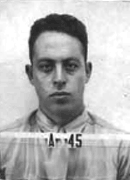Samuel Theodore Cohen was born on January 25, 1921. He was an American physicist and is known as the father of the neutron bomb. A neutron bomb is an ERW, low yield thermonuclear weapon. They are designed to produce high rates of lethal neutron radiation in the vicinity of the blast. Since 1992, these weapons have been retired.
Cohen’s parents were Austrian Jews, who emigrated from London. He was born and raised in Brooklyn. He studied mathematics and physics at the University of California, Los Angeles, graduating in 1943.
He joined the U.S. Army later that year. He was posted to MIT for advanced training in math and physics, before joining the Manhattan Project. In 1944, he arrived at Los Alamos. Here, he worked in the efficiency group, and calculated how neutrons behaved in the “Fat Man” bomb.
After the war he briefly studied at Berkley, before joining the RAND Corporation. During the Vietnam War, Cohen argued for the use of small neutron bombs, believing this could cause a quick end to the war. Many politicians and scientists did not agree. In the early 1970s, he served as a member of the Los Alamos Tactical Nuclear Weapons Panel. In 1978, President Carter delayed the development of the neutron bomb. But, later, President Reagan allowed for the creation of 700 neutron bombs.
Cohen’s books included: Tactical Nuclear Weapons: An Examination of the Issues (1978); The Neutron Bomb: Political, Technological and Military Issues (1978); Checkmate on War (1980); The Truth about the Neutron Bomb (1983); We Can Prevent World War III (1985); and Nuclear Weapons, Policies and the Test Ban Issue (1987). His memoir, Shame: Confessions of the Father of the Neutron Bomb, was published online in 2000.
Cohen passed away on November 28, 2010. For more on Cohen and neutron bombs, click here to read Cohen’s obituary in the L.A. Times.





